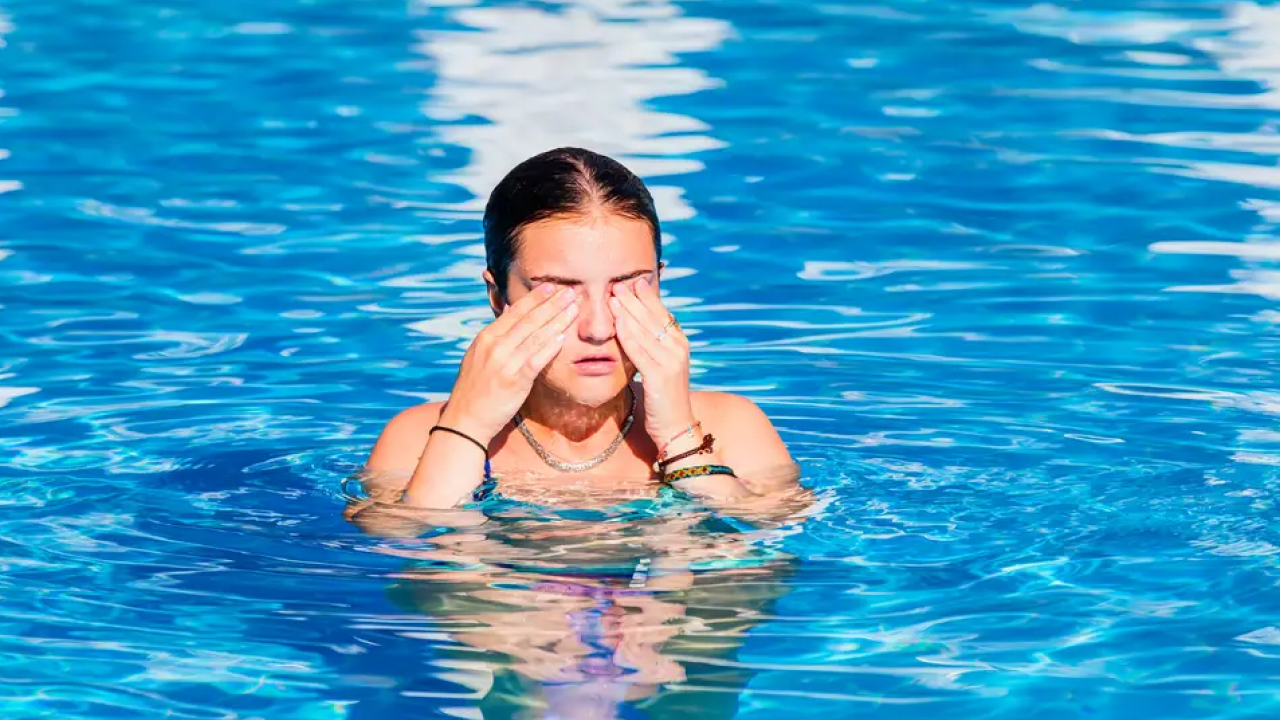Adopt simple yet effective habits to safeguard your skin from potentially harmful chemicals found in swimming pool waters.
Swimming is more than just a survival skill; it’s a delightful form of physical exercise that enhances overall fitness. Despite its benefits, many hesitate to swim frequently due to concerns over skin irritation caused by chlorinated pools. Fortunately, we have gathered some valuable skin care tips specifically for swimmers. These methods can help mitigate the effects of harmful chemicals and irritants, enabling you to enjoy your swim without worry.
We’ve assembled a list of eight essential skincare tips for swimmers to address potential skin issues. But first, let’s explore how swimming can impact your skin.
Swimming: Boon or Bane for Your Skin?
Swimming pools are often treated with chlorine to eliminate bacteria and germs. However, the same chlorine responsible for maintaining pool cleanliness can strip your skin of its natural, protective oils. This can lead to several issues, including:
- Dry skin
- Premature aging due to dryness and protein damage
- Itching and rashes caused by disrupted oil and pH balance
- Overproduction of oils compensating for the loss, leading to
- Acne from excessive oil production and pore blockages
- Increased susceptibility to sun damage due to weakened skin
However, with appropriate precautions, the scales can tip in your favor. Swimming can support skin health by detoxifying your body through physical activity. Moderate exposure to chlorine can also kill acne-causing bacteria, promoting clearer skin.
Pre and Post Swim Skincare Tips
Read on to discover how to protect your skin during your swimming sessions.
Preparing Your Skin Before Swimming
Apply Sunscreen
Applying a waterproof sunscreen is not merely a precaution against tanning. The lotion also creates a protective layer on your skin, preventing excessive drying from chlorine exposure and shielding you from sun damage (which can hasten aging, particularly for regular swimmers.) Consider investing in a pre-swimming lotion, specifically designed to counteract chlorine and retain your skin’s moisture. Apply these products approximately 15 minutes before swimming to allow your skin ample time to absorb the sunscreen and establish a robust barrier.
A recent study by the American Academy of Dermatology revealed a lack of sun protection knowledge among US adults. Despite 62% of respondents considering themselves well-prepared for sun protection, 63% reported tanning and 33% reported sunburns. Additionally, 67% incorrectly believed that SPF 30 sunscreen offers double the protection of SPF 15 sunscreen. These findings underscore the importance of following a proper sunscreen regimen to protect your skin effectively.
Shower Before You Swim
Many public pools require a quick shower before swimming. Although this may seem superfluous, showering helps keep the pool clean and hydrates your skin cells. This hydration prevents your skin from absorbing pool water and strengthens your sunblock barrier, adding an extra layer of protection.
Stay Hydrated
One effective way to prevent skin dehydration is by drinking water frequently during your swimming session. Ensure you’re adequately hydrated throughout the day, keeping your skin healthy and discouraging it from absorbing excess pool water due to lack of moisture. Consider your skin as a sponge: it can only retain a certain amount of water. If it’s well-hydrated, it’s less likely to absorb large quantities of chlorine.
Post-Swim Skin Care Tips
Shower with Warm Water
Showering immediately after exiting the pool is crucial. Begin your shower with warm water to open up your pores, facilitating a deep cleanse. Use an anti-chlorine soap— a valuable investment for regular swimmers—to wash your body thoroughly, including your hair. Conclude with cool water to contract your pores, helping to prevent moisture loss.
Use Talc for a Quick Dry
A little talc can go a long way in hastening your drying process post-swim, especially in areas like your armpits. It can also absorb any remaining chlorine on your skin. Be cautious to avoid using talc on areas you intend to moisturize later.
Moisturize Your Skin
The cornerstone of any swimmer’s skincare routine is moisturizing. Invest in a high-quality hydrating moisturizer and use it consistently to maintain your skin’s health.
Maintain Your Swimwear
Proper care for your swimwear, goggles, and swim cap is essential for skin health. Chlorine can cause your swimwear to fade over time. To preserve your swimwear, add about a tablespoon of vinegar to your washing cycle. This not only neutralizes the smell of chlorine but also helps maintain the fabric’s color.






